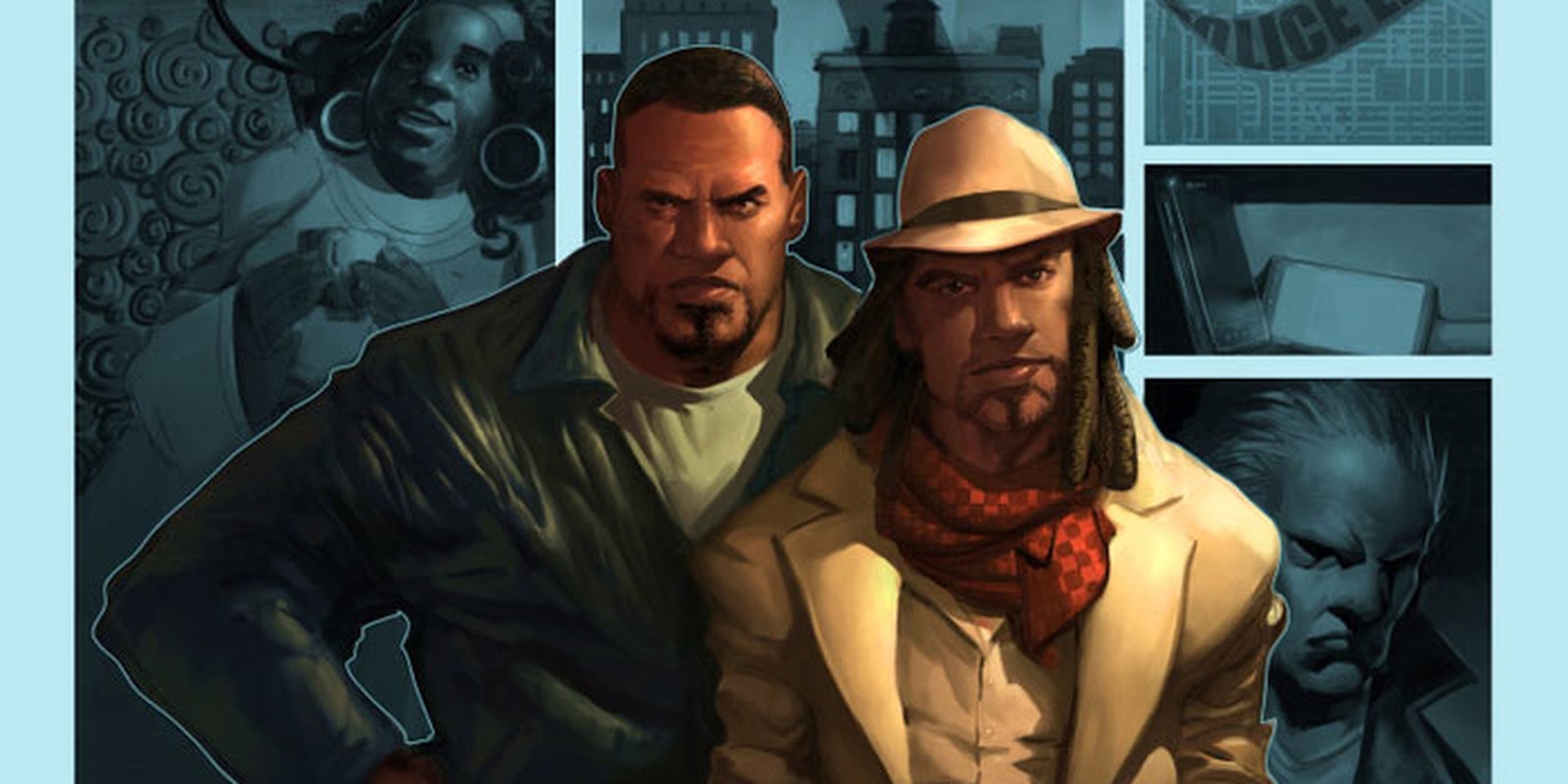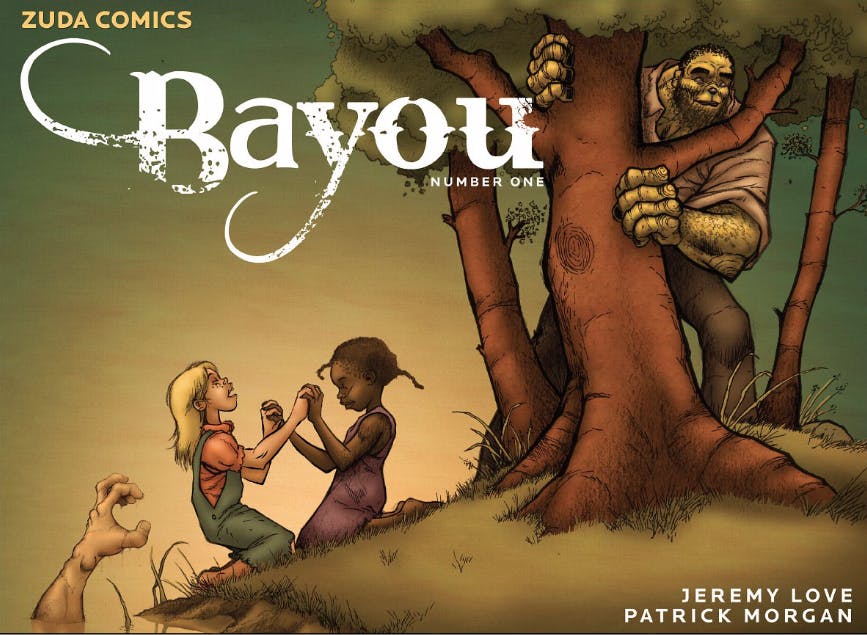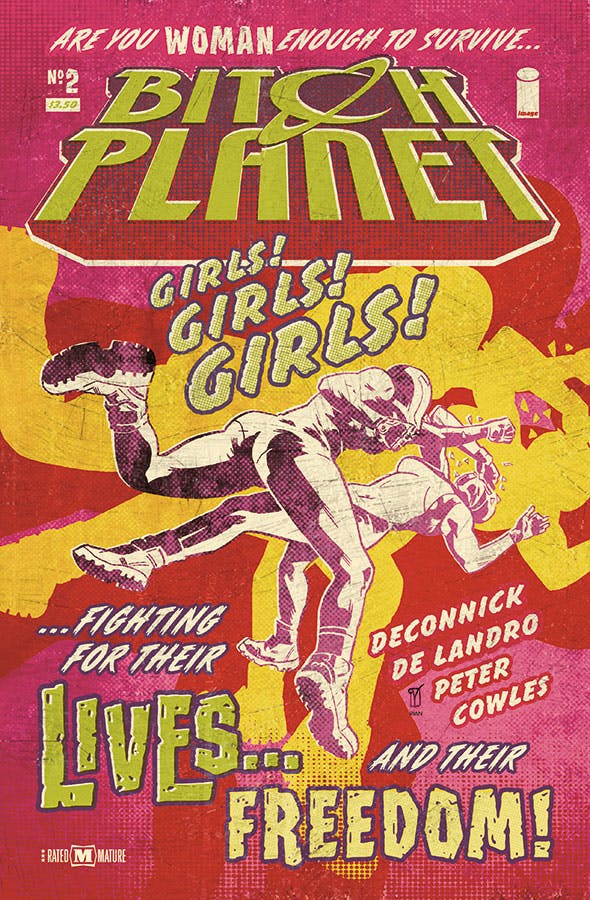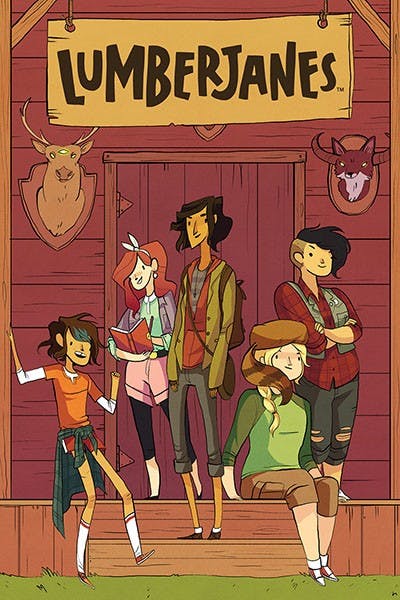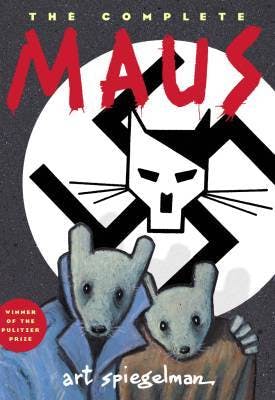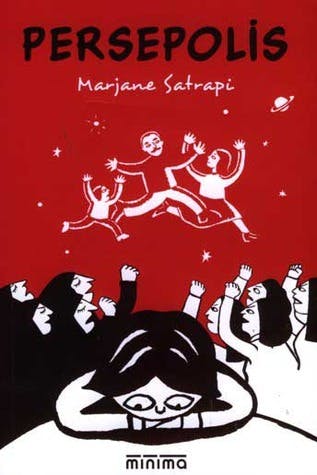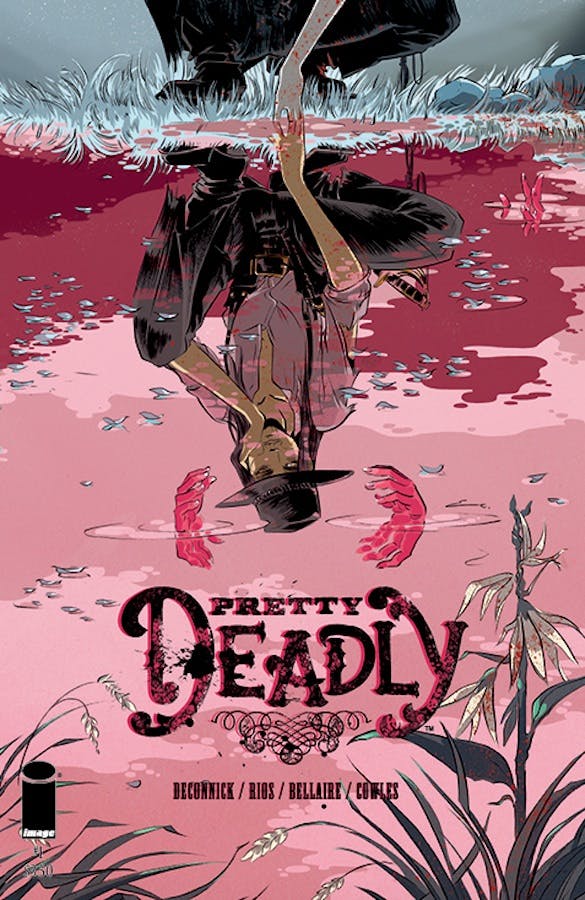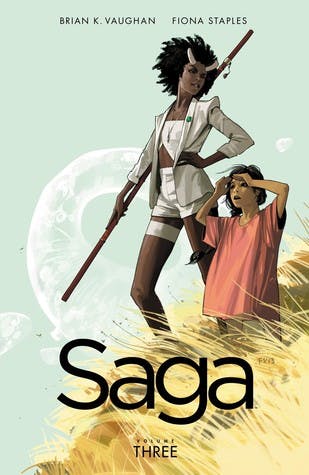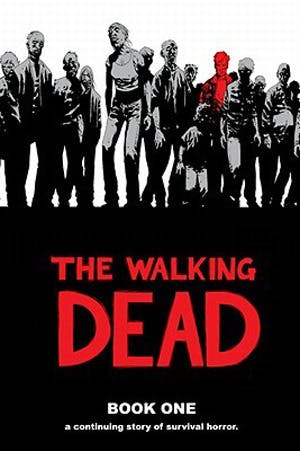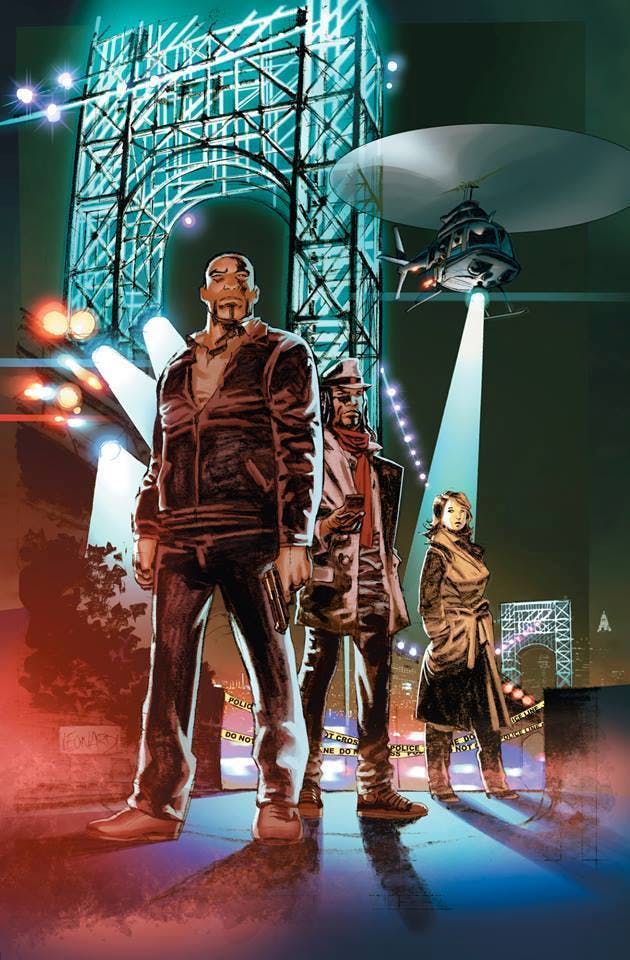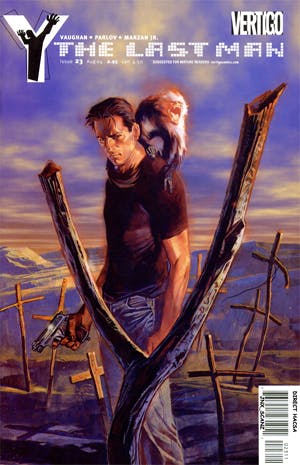In recent years, comics culture has moved thoroughly into the forefront of mainstream culture. As superheroes ascend into the pantheon of truly revered literary characters, it gets harder and harder to make the argument that comic books and graphic novels aren’t legitimate art forms.
But outside of the more famous Marvel and DC fare are plenty of beautiful and innovative comics that don’t involve superhero tropes. We thought we’d take a closer look at some of these other comics.
For this list we chose to sidestep series that have elements like superheroes or people with superpowers as part of their narratives. That means that you won’t find a lot of groundbreaking and subversive comics (Sandman, Swamp Thing, Watchmen, Enigma, Preacher, The Wicked + The Divine) that fall into that category here. Instead, we’ve shared some of our favorite comics and graphic novels that move beyond the traditional range of what’s thought of as the purview of comics as a medium.
The titles here are moving and insightful, and plenty of them contain monsters. But some of those monsters are of the human variety, and the characters at the heart of these comics are heroes of a different kind.
Bayou
Jeremy Love’s vastly underrated comic about a Mississippi sharecropper and his daughter reclaims the genre of Southern Gothic. This is Beasts of the Southern Wild meets Winter’s Bone, without any of the clichéd optimism of the former to cheapen the resilience of the latter. What’s here is a hollowed-out but still beautiful, haunting vision of the ruined South as the backdrop for the story of a courageous young girl who goes on a quest to rescue her father and her best friend. The first issue of this gorgeous comic, which won the 2009 Glyph award for story of the year, is currently free at Comixology.
Bitch Planet
“Think Margaret Atwood meets Inglourious Basterds,” is how this take-no-prisoners Image comic describes itself. Written by Captain Marvel‘s Kelly Sue DeConnick and illustrated by X-Factor‘s Valentine DeLandro, Bitch Planet‘s pulp feminism combined with its gritty dystopic vibe has spawned a devoted cult following. But don’t let its exploitative trappings fool you. Beneath the sexuality and violence, this savvy comic is a biting commentary on social, racial, and gender inequality. Fans describe themselves as “non-compliant” in keeping with the rebellious women prisoners at this comic’s core.
Lumberjanes
What’s better than a teenage girl detective? Five of them, of course. This whimsical premise combined with a crackerjack team of writers and artists, including Noelle Stevenson and guest artists like Faith Erin Hicks, has made Lumberjanes a favorite with readers. Written by Grace Ellis and Stevenson and illustrated by Brooke Allen, this story of five friends battling monsters at summer camp will charm you as often as it thrills you.
Maus
Art Spiegelman’s Pulitzer-prize-winning work is perhaps the most famous graphic novel in print today; but its moving, often humorous subject matter is occasionally misunderstood even today, nearly four decades after it first began appearing in serialized form. Published between 1980 and 1991, Maus‘s deceptively simplistic format—Spiegelman interviews his father and records his recollections of the Holocaust through striking artwork depicting the Jewish characters as mice and Nazis as cats—is reminiscent of that other voluminous Holocaust manifesto, the 10-hour documentary Shoah. Both rely on the power of first-person recollections to tell their story, and both provide the sense that history is a living, breathing entity, still waiting to swallow us whole.
Palestine
It’s not often you find a graphic novel that has an introduction from a renowned postcolonial theorist like Edward Said, but then it’s not often you find a graphic novel written by a frustrated journalist who turned to the medium of comics because he felt it could make more of a difference. With his groundbreaking work, Joe Sacco took his experience of the Intifada and delivered a documentary in comic book form: an unflinching portrait of the reality of life in Palestine in the late ’80s and ’90s at the hands of a brutal Israeli police force. Like Maus, Palestine uses a first-person narrative to great effect, filtering moments of human injustice and human triumph through Sacco’s overwhelmed viewpoint.
Persepolis
Marjane Satrapi’s tale of growing up in Tehran during the Iranian revolution and the Iran–Iraq war is known for its sharp political commentary and its distinctive, endearing artistic style. But what remains years after this graphic novel’s acclaimed debut is that Satrapi’s shrewd observation of the dark world around her never overwhelms her ebullience, wry humor, and optimism in the face of a chaotic political climate.
Pretty Deadly
This Eisner-nominated comic has served up plenty of controversy along with its gorgeous artwork, but then given that Kelly Sue DeConnick is once again helming this unabashedly feminist work, along with artist Emma Ríos and colorist Jordie Bellaire, that’s no surprise. A character-driven Western mixing folklore and fantasy with hints of magical realism, Pretty Deadly often feels like the classic comics Sandman and Preacher got together and had a badass daughter—and that’s as amazing as it sounds.
Saga
The only thing wrong with this beloved and bestselling comic from writer Brian K. Vaughn and artist Fiona Staples is that it’s simultaneously a comic you wish was finished so that you could read it in its entirety, and a comic you wish you hadn’t read yet, so that you could experience it for the first time all over again. This sweeping, mature drama set in the middle of an intergalactic space war manages to be an epic space opera, a poignant family drama, and a dazzling fantasy of star-crossed fates, all at once. There’s a reason it’s been showered with every award from the Eisner to the Hugos. It’s pretty much perfect.
Sex Criminals
Written by comic hero Matt Fraction of Hawkeye fame and illustrated by Chip Zdarsky, Sex Criminals practically had “cult following” written all over it from its inception. The main characters of Sex Criminals discover that they can stop time when they orgasm. Naturally, they decide to use this power to pull off bank heists. The tongue-in-cheek comic is currently being adapted for television by Fraction and DeConnick, so now is the perfect time to read it before all your less cool friends discover the TV version.
TJ & Amal
The Less than Epic Adventures of TJ and Amal finally came to a close last year after a six-year run as one of the most beloved webcomics in recent memory. Created by E.K. Weaver, this boy-meets-boy romance, hilarious and poignant by turns, starts with a disastrous coming-out and a deceptively uneventful (less than epic) college roadtrip. Widely praised for its artistry and realistic depictions of queer life, TJ and Amal spawned a large fanbase, including an official tribute album with contributions from over 60 artists. You won’t find this one in stores on Free Comic Book Day, but thanks to a recently successful Kickstarter campaign, the full TJ and Amal omnibus, in all its 528-page illustrated glory, will be available next month. Or, if you don’t want to wait that long, you can order individual volumes here.
The Walking Dead
So much has been said about this runaway bestseller and cultural phenomenon that it almost feels like cheating to include it here; but beneath all the hype, Robert Kirkman’s The Walking Dead has a compelling, sharp narrative that has won tremendous critical acclaim, including an Eisner Award for Best Continuing Series. Rick Grimes’ post-apocalyptic travails still have readers clamoring for each new issue even now, 12 years after the Dead first shambled into our lives.
Watson and Holmes
Written by frequent Marvel contributor Karl Boller, illustrated by Rick Leonardi, and co-created by Brandon Perlow and Paul Mendoza, this Eisner-nominated and Glyph-winning comic transplants your favorite Victorian detectives into the heart of Harlem. It’s rare enough to find a version of Sherlock Holmes that lets Watson be as much of a badass as his partner, much less one that positions him as the main character; but it’s the gritty authenticity of life for two black detectives in the tense streets of New York that’s won this series its well-deserved popularity. Backed by a successful Kickstarter campaign, the second volume of this series will feature one-shot stories done by a variety of different creators.
Y: The Last Man
Ten years before Saga, Brian K. Vaughan riveted readers with this story of a young man who mysteriously survives a cataclysmic apocalyptic moment that wipes out every man on earth but one. You might not think that this plot, rife as it is with apocalypse tropes, mystery, and thrilling dystopic nightmare scenarios, would make a compelling case for feminism. But this setup actually allows Vaughan to explore the dangers of disenfranchising and underestimating an entire gender, while giving our hero, Yorick, one rude awakening after another as he’s forced to experience how the other half lives.
Illustration by Rick Leonardi, color by Ryan Wardlow; via Comic Book Resources

